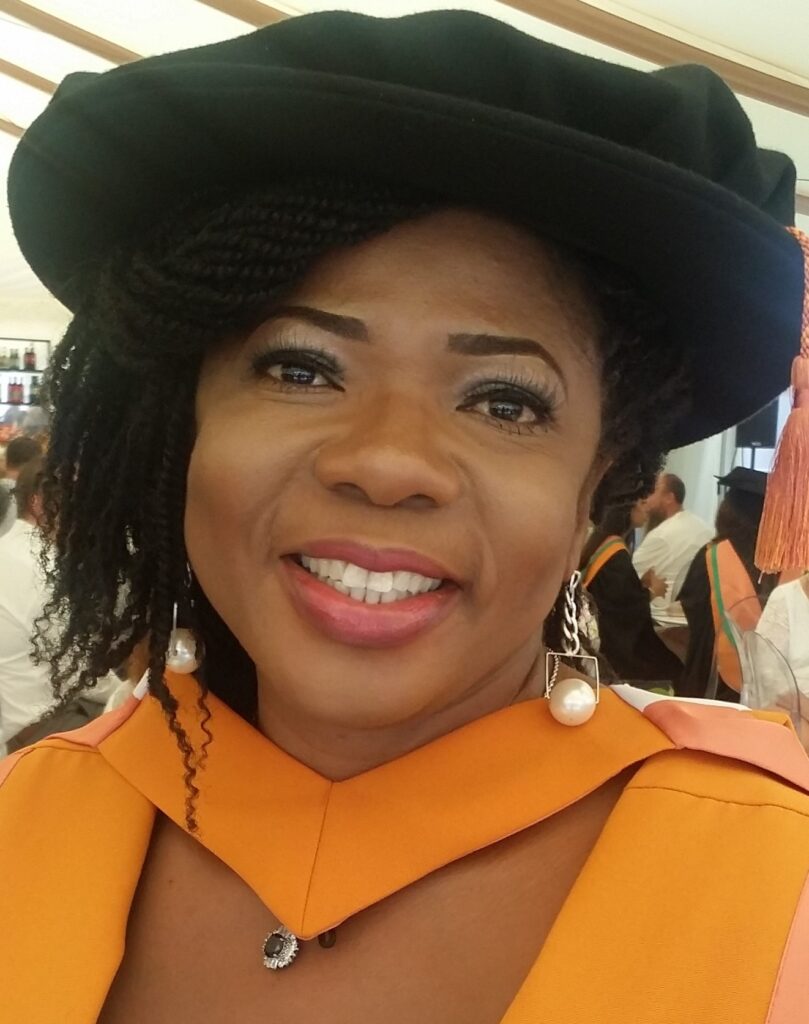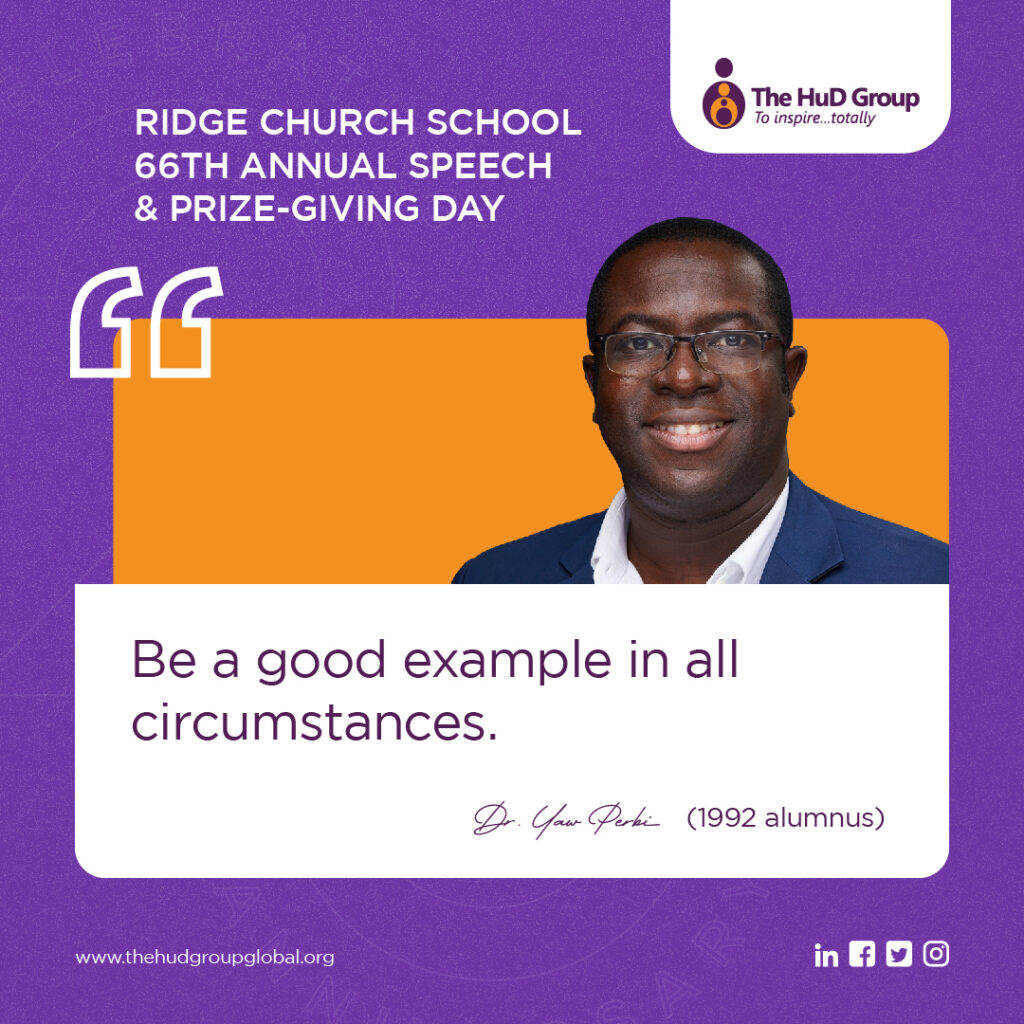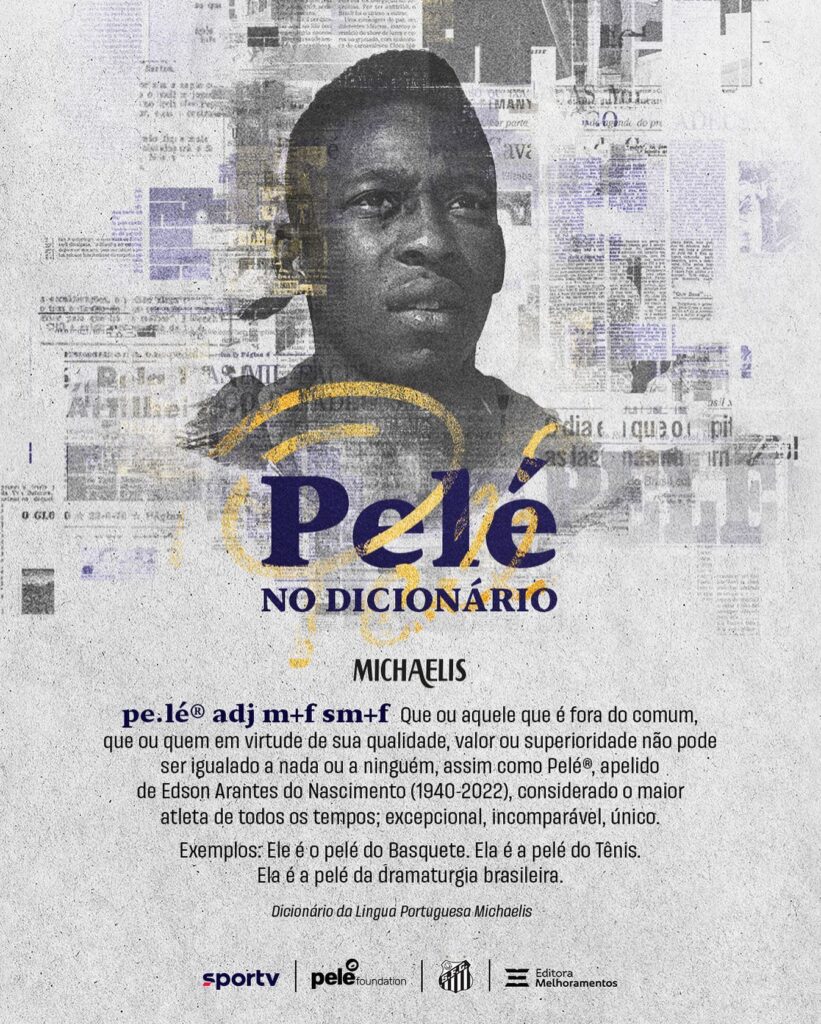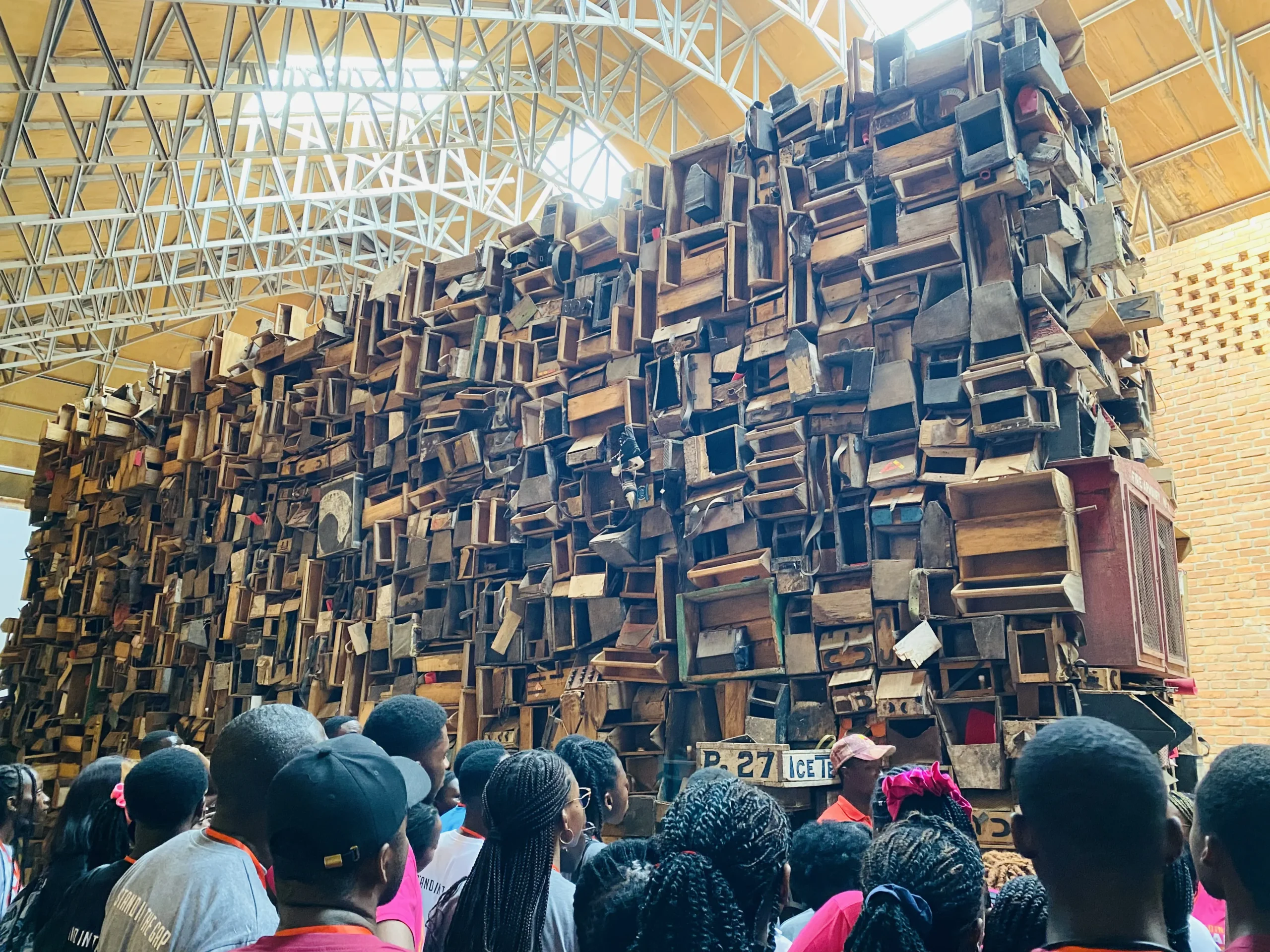
#DIFFERENTIATION: A DOCTOR’S PRESCRIPTION FOR EVERYONE ON SOCIAL MEDIA
Photo: #RedClay exhibit of a variety of cobbler boxes at Ibrahim Mahama’s museum and gallery in #Tamale, northern #Ghana.
Every now and then I lose a hitherto social media ‘friend.’ The peak was during the days of the #Trump presidency. Yesterday, I was amazed at the sort of hero-sanitising that won’t make certain followers of a Ghanaian presidential aspirant (former president) accept that he wasn’t an angel even though the evils of the incumbent and (our short memories) are making the former look better than he really is (don’t forget he was kicked out after one term for a reason). Gosh! This sounds so much like Trump, who’s also seeking re-election across the Atlantic, after being a one-term president.
When I was an active, multiple award-winning #Toastmaster, we were cautioned to avoid topics bordering on #religion, #politics and #sex because they were ‘highly inflammable.’ These three tend to run our emotions high and our intellect low, leaving most with neither high IQ nor high EQ!
Yet, what is the hidden cost of not being oneself or sharing one’s honest opinions? It seems that even on one’s own social media wall–their own piece of the metaverse real estate–one is bullied and insulted should they state their honest opinion about these same ‘three musketeers’.
We all could use some good old #differentiation! Differentiation of self is a psychological state and skill where someone can maintain their sense of self, identity, thoughts, and emotions even though emotionally or physically close with others, even in intense or intimate relationships.
“Healthy groups allow every member to express their individuality without that difference being seen by other group members as a threat.” That’s differentiation. Enough of the herd mentality already!
Not even my wife and I agree on everything. But we will not treat the other as an ‘It’ (instead of a ‘Thou’, to reference Martin Buber) or be less of ourselves because of a fear of offending the other, if we are emotionally intelligent and emotionally healthy people.
I refuse to be cowered into keeping my own social media wall free from my own opinions because of poorly differentiated individuals of other religious and/or political persuasions. It is my wall, and in the words of the late Steve Biko, “I write what I like.” Some people are simply emotionally immature, unintelligent and unhealthy and being less of me won’t necessarily help them become more of themselves or make the world any better.
Can you disagree without being disagreeable? That’s a basic #differentiation test. The more highly differentiated one is, the more they can be themselves, vehemently argue out their point and still love and respect their ‘opponent’ (maybe not in life but just on a matter).
Jesus Christ, the greatest teacher that ever lived, was a very highly differentiated person. He would receive sworn enemies hospitably and even respectfully dialogue with his detractors. That didn’t change who He was or the Truth. If your only recourse to those you disagree with is silence or violence, insults or blocking, then you need a healthy daily dose of #differentiation. Especially on social media.
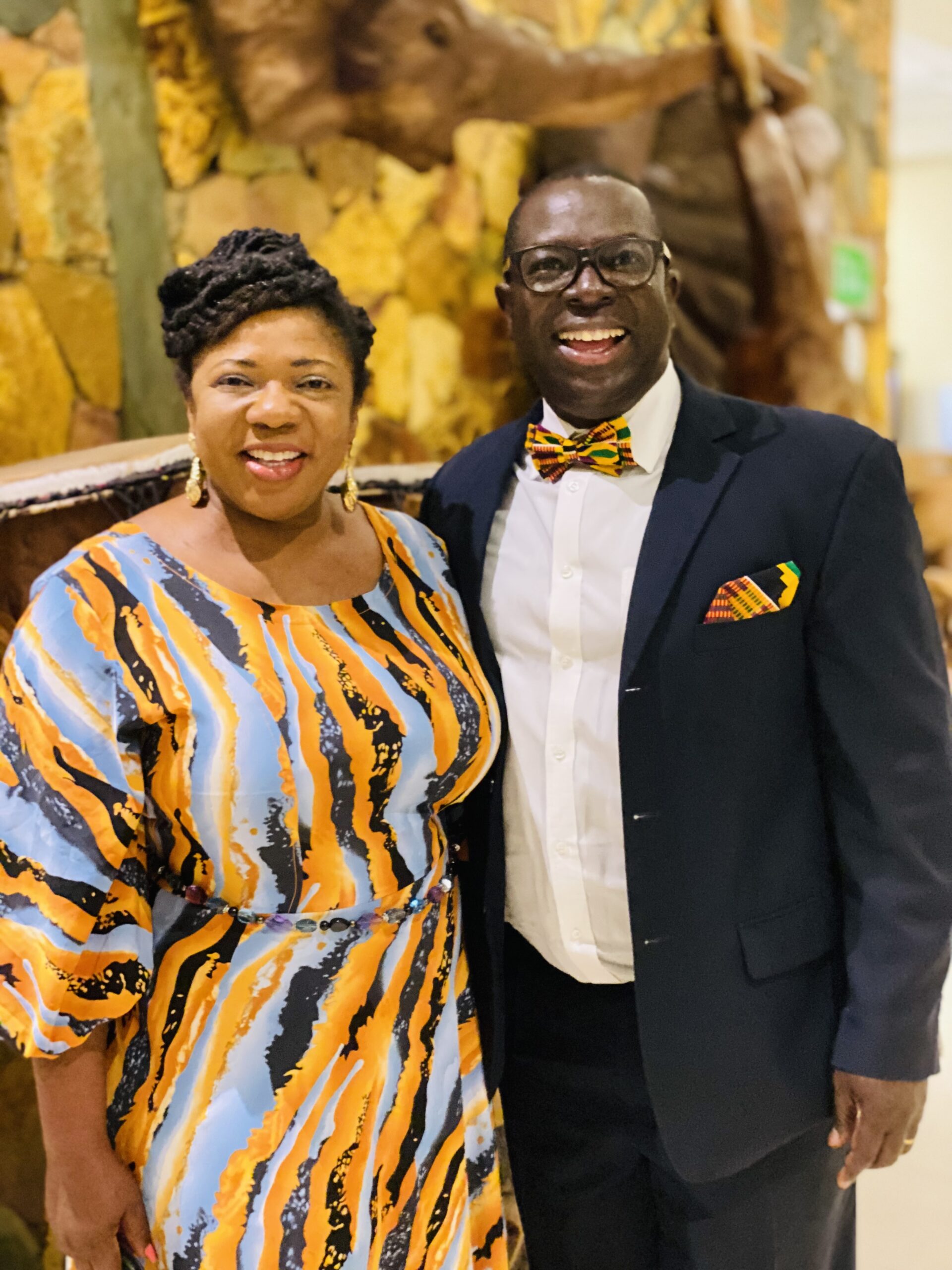
Meet The Nursing Doctor That Beat “Medico or Suicide!” Fair and Square
In those mid ’90s, one had to do a year (Level 200—if from the old O’ and A’ level system) or two years (Levels 100 and 200—from the new Junior and Senior Secondary School system) to see who qualifies, per superior GPA, to be called for the University of Ghana Medical School interview.
If my memory serves me right, of the nearly 900 of us, only a third made the interview list; and of that, only another third were admitted to medical (and dental) school. Folks were so bent on making the final 100 who will don the coveted white coat and carry boxes of bones on and off the med school bus that the mantra was “medico or suicide!” It was a serious threat in those heady undergraduate days.
I personally don’t recall anyone who didn’t make the cut actually physically killing themselves but many died emotionally, mentally and even socially. That nonsense killed many brilliant minds. I know of some that had to take a year off to heal; some even left the country for a bit. I still meet people who seem to be a pale shadow of themselves prior to this deathly mantra.
CAREER = PROFESSION + FIELD
I hope that career and counselling services have improved for the current generation but I can tell you for a fact that most of us were too young, back in the 1990s, to even definitely know what we wanted, career-wise. O of course many of us thought we knew, just like we thought we knew who we wanted to marry. Probably 0.0001% of us ended up marrying who we ‘so sure’ about.
In fact, many of us mixed up the passion for the general field (healthcare) with a passion for a particular profession (medical doctor). I was fortunate to learn the CAREER = PROFESSION + FIELD formula from the What Colour is Your Parachute? publication and many in that biological sciences pool could’ve found use for it too. Take my friend Retha (true story but not her real name), for example. She was a couple of years behind me. She didn’t make the dreaded med school list. And you wouldn’t believe the kind of hell her parents subjected her to, as a result. Thankfully she weathered the storm and did great at her plan B: Psychology. She loved it and excelled at Clinical Psychology in particular so much that she continued with graduate studies and eventually landed a PhD in it, in the United States of America.
Think about it: she still ended up in the field of healthcare which she was passionate about but realised she didn’t need to have the profession of a medical doctor to pursue that passion. The competent psychologist she became satisfied the same passion and fulfilled her calling. In any case, she’s still called “Dr.” today in her practice and who the heck cares if she earned the “Dr.” title from med school or from grad school, especially if she’s doing one heck of a good job in the clinic.
THE NURSING DOCTOR
These thoughts above were provoked by attending a recent Doctors in Business banquet at the Holiday in Accra, Ghana. As a guest keynote speaker, I had the privilege of sharing the high table with a course mate from Level 100 at the University of Ghana, Legon. We were both introduced as “Doctor” but I could swear she wasn’t in med school with me. By the end of the night it turned out that both the MC and myself were right. She was not med school with our batch, and she isn’t a medical doctor (I was right); but she is a doctor alright, a doctor in nursing (the MC was right).
“So I did biological sciences with you guys at Level 100 because I came to Legon as a science student,” Dr. Lillian Akorfa Ohene (PhD, MPhil, PN, BSc) intimated to me, but fortunately she wasn’t of the “medico or suicide!” tribe. “I branched off to nursing after level 100 because nursing was my first choice.” I’ve been so impressed that she knew exactly what she wanted even back then (forget the prestige of med school) and went straight for it. It reminds me of a brilliant 4.0 (perfect GPA) friend of mine who could’ve easily made it to med school but also chose to do Nutrition and Food Science, in the steps of her food scientist dad. She’s doing well in the industry, a leader of leaders.
Beyond knowing what she wanted and decisively moving towards it despite the definite distraction of medicine, Lillian’s story is also serendipitous as “the road rose to meet her.” She continues the conversation thus: “…but it happened that at that time, the nursing program started at level 200.”
IMPRESSIVE CURRICULUM VITAE
Today, Dr Lillian Akorfa Ohene is a Senior Lecturer and the Head of Department for Public Health Nursing at the University of Ghana’s School of Nursing and Midwifery. She is a certified paediatric nurse, who holds a PhD in Nursing from De Montfort University, Leicester, UK, a Master of Philosophy and Bachelor of Science in Nursing, both from the University of Ghana.
Lillian has over twenty (20) years of practice and teaching experience in higher academic institutions. Her research interest focuses on holistic care of sick children and the well-being of women and their families. As a qualitative researcher, she has explored extensively, the concept of family-centred care among sick children in the Ghanaian context. Some of her findings have been published widely in both local and international peer-reviewed journals. She also serves as a reviewer for several international journals.
On the international stage, Dr Ohene is a member, and a faculty counsellor of Chi Omicron Chapter of the Honor Society of Nursing, Sigma Theta Tau International (STTI) at Indianapolis, USA, a member of West Africa Postgraduate College of Nurses and Midwives (WAPCNM) and a foundation fellow of Ghana College of Nurses and Midwives (GCNM).
Dr. Ohene is also a Queen Elizabeth Scholar (QES) and serves as a mentor to her students, nurses and midwives locally and internationally. She has supervised over a hundred research projects, from undergraduate to PhDs. She is passionate about students’ academic success. The reason for our crossing paths last weekend is that she currently serves as a patron for three different student associations at the University of Ghana, of which Doctors in Business (DIB) is one. She serves on the board as well. Lillian is a family woman, married with three young adult children.
LILLIAN LESSONS LEARNT
Don’t die when life doesn’t go your way (death isn’t only physical); live to make so much of the further opportunity that rises to meet you that it’s a dis to that previous appointment (‘disappointment’). Through self-awareness, from introspection as well as feedback (take coaching and counselling seriously), know who you are and what you want and go for it. That’s where your future lies; don’t get distracted by the bling (even if its a shiny jewel like medicine). Yes, pursue your passion but be careful not to confuse the field and the profession. And remember that when you make a move, even when you don’t know what the next move after that step is, serendipity happens. Just make the move; it’s actually not moving at all that just might be suicidal.
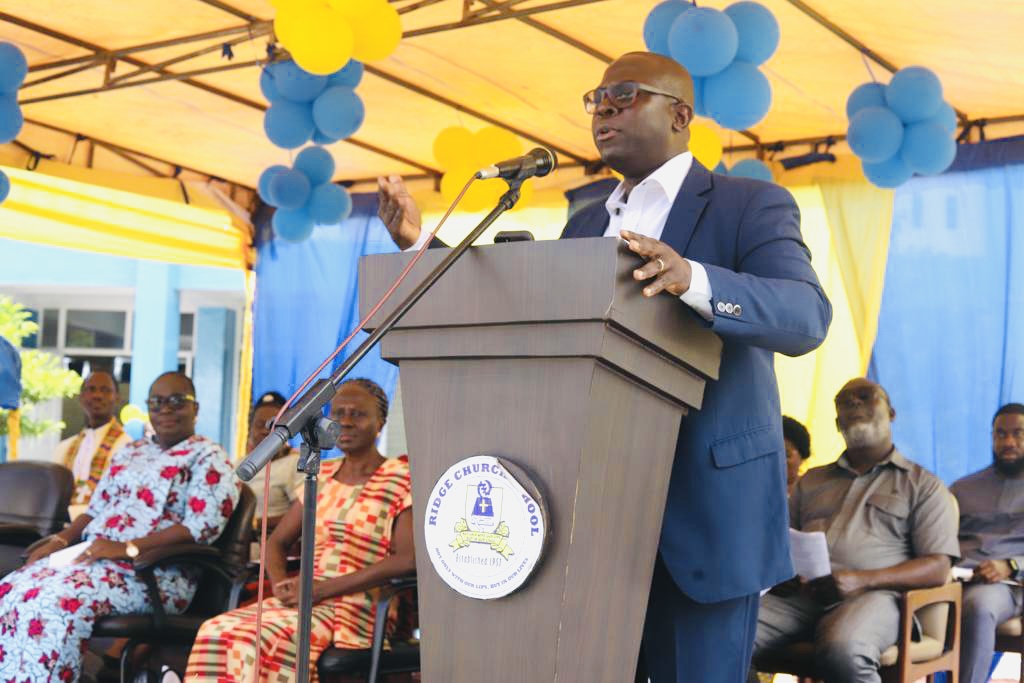
Be a Good Example in All Circumstances ~ 66th Annual Speech & Prize-giving Day, Ridge Church School
66TH ANNUAL SPEECH & PRIZE-GIVING DAY, RIDGE CHURCH SCHOOL
SPEECH BY DR. YAW PERBI, Global CEO of The HuD Group
26th August, 2023
Chairperson, Guest of Honour, School Board and Management, Teaching and Non-Teaching Staff, Parents and Learners, Invited Guests, (all protocols observed), good afternoon. It is an honour to return to Ridge Church School to address you today after leaving here 31 years ago. And it is a double honour as this is the second time I’ve been invited to do so over the last two decades.
The theme chosen for this year is BE A GOOD EXAMPLE IN ALL CIRCUMSTANCES and we shall consider it in three simple ways:
- WHAT IS?
- WHO SHOULD?
- WHY MUST?
1. BE A GOOD EXAMPLE IN ALL CIRCUMSTANCES: WHAT IS?
You must’ve heard from my introduction that my wife and I are blessed with seven biological children. Well, on Monday morning, our delightful six-year-old daughter, our fifth child called Nana Ahomka, came to tell me, “Daddy, I should be a leader at AWANA,” a children’s Bible training program. When I asked who a leader is she said, “Someone who sets an example for everyone else to follow.” I replied, “You got that right girl,” and that gave me the essence of my message today.
Today, the word “leader” is overused and abused. But for a moment, forget about all the 360 plus official definitions (yes) and consider this: a leader is someone who sets an example for others to follow. A good leader sets a good example; a bad leader does the opposite. Seeing it that way, a lot of so-called ‘leaders’ are really not good ones, even if they are in powerful political positions, are sensational speakers or even have top professions and enviable riches. Recently, we have seen our parliamentarians insulting and throwing physical blows in parliament. That is bad leadership. And it needs to be called out for what it is.
So WHAT IS being a good example in all circumstances? Good leadership or Godly leadership.
2. BE A GOOD EXAMPLE IN ALL CIRCUMSTANCES: WHO SHOULD?
Everyone of us, especially you, young ones—YOU ARE NOT TOO YOUNG TO BE AN EXAMPLE.
The Little boy Samuel was only 12 years old and could hear God’s voice at a time when “the word of the LORD was rare; there were not many visions.” [2] He heard God’s voice and told the ‘Papas’ of the land what to do. Ghana could use some Samuels right now—YOU!
That is what Paul the mentor meant when he said to his teenage mentee Timothy, “Don’t let anyone look down on you because you are young, but set an example for the believers in speech, in conduct, in love, in faith and in purity.” [3] In fact, sometimes it’s the adults that actually encourage us to do the wrong thing: I shall never forget my BECE experience in 1992 when a female invigilator who noticed I had completed my work, suggested to me to write the answers on an eraser so she could give it to another person who was struggling! Imagine that. An invigilator! I said, “No Madam. That is not right.” She was shocked.
Sometimes people don’t like us for not following their bad example or for calling out their bad example. But in a good society, good examples are reward. For example when I went to Achimota School, my good example was observed by the staff and I was selected to represent Achimota in exchange programme in America. It is also good examples who are selected to be prefects here, right?
Even at the university, I had to resist cheating in exams and started an organization called The HuD Group (The Human Development Group) [4] to help young people to become good leaders. When I got a national award for this, handed to me by then then Vice President of Ghana, Hon. Aliu Mahama, as the Newmont Ghana Highest Achievement Award winner at the Millennium Excellence Youth Awards in 2006, our Minister of Health then, Major (Rtd.) Courage Quashigah, wrote me a congratulatory letter, part of which read:
“We in the health sector are very proud of you and urge you to continue to be an Outstanding Achiever… It is my hope that you will bring your charisma and devotion to bear on every youth you encounter and they in turn will emulate your leadership example. On behalf of the entire health sector and on my own behalf, please accept my congratulations.” [5]
So WHO SHOULD be a good example in all circumstances? Everyone, especially you young ones!
3. BE A GOOD EXAMPLE IN ALL CIRCUMSTANCES: WHY MUST?
In 1792 King Louis XVI (16th) was taken from his throne by some rebels and imprisoned. His young son, the prince, was taken by those who dethroned the king. They thought that inasmuch as the king’s son was heir to the throne, if they could destroy him morally, he would never realize the great and grand destiny that life had bestowed upon him. They took him to a community far away, and there they exposed the lad to every filthy and vile thing that life could offer. They exposed him to foods the richness of which would quickly make him a slave to appetite. They used vile language around him constantly. They exposed him to lewd and lusting women. They exposed him to dishonor and distrust. He was surrounded 24 hours a day by everything that could drag the soul of a man as low as one could slip.
For over six months he had this treatment but not once did the young lad buckle under pressure. Finally, after intensive temptation, they questioned him. Why had he not submitted himself to these things why had he not partaken? These things would provide pleasure, satisfy his lusts, and were desirable; they were all his. The boy said, “I cannot do what you ask, for I was born to be a king.” [6]
Ladies and Gentlemen, we are all born to be kings and queens, princes and princesses, in the kingdom of God. WHY MUST you be a good example in all circumstances? You were born to be royalty.
CONCLUSION
In conclusion, be a good example in all circumstances. “The time is always right to do what’s right,” as Martin Luther King told some (Oberlin) students. Be an example, be a leader. As young as you are, even if everyone is doing the wrong thing and adults are pushing you to, be a prince/princess because:
1. that’s who you are—you were born to be a leader, to be king/queen
2. that’s what God’s word says and God expects
3. it’s for your own good (there’s no law against being a good example or punishment for it)
4. society needs it today and will remember you in history
5. Almighty God will reward you. Say, “Heaven backs me when I do the right thing!”
Be a good example—whether you are 6 or 60! Be the king and queen you were born to be. Be a good example in all circumstances, BE A GODLY LEADER!
References
[1] https://www.bbc.com/pidgin/tori-59738001[2] 1 Samuel 3:1, NIV
[3] 1 Timothy 4:12, NIV
[4] See www.thehudgroupglobal.org
[5] Portion of letter by Hon. Minister of Health in 2006, emphasis mine
[6] Sean Covey, The 7 Habits of Highly Effective Teens (and other sources)
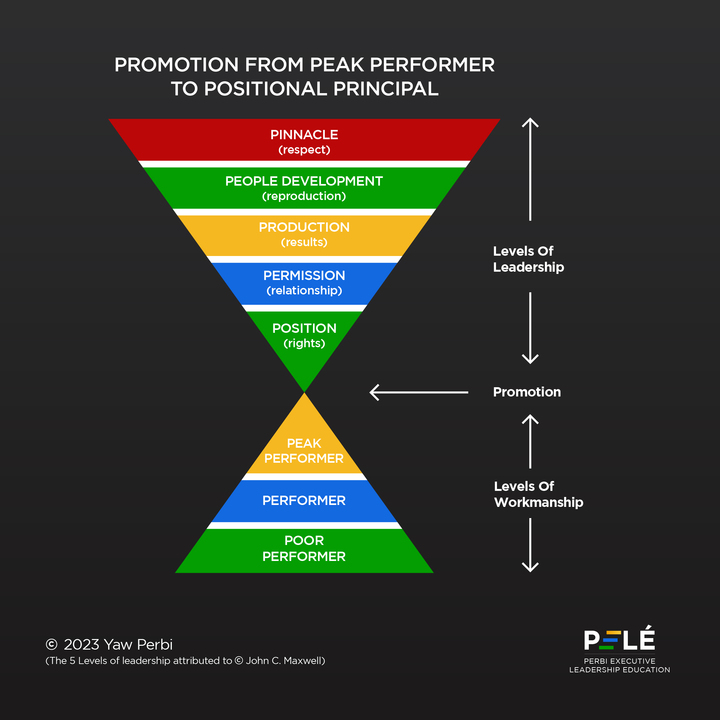
The Best Promotions are the Worst.
Here’s the worst thing about the best promotion. At one of my organizations, we recently had to let an excellent hire go. Come to think of it, we failed him. We failed him by promoting him.
You would think that all promotions are good but no. One of the worst kinds is being ‘elevated’ to become a leader just because you are an outstanding worker or producer. Working on stuff and excelling is very different from working with souls to excel. The reward for hard work is more work, weird yes, but the latter tends to be more mental work than manual —which most people find as more beneficial—also, more of working with people than working on things.
As one person shared about struggling with leadership upon her first promotion as a telco manager: “Within one month, I went from being the best programmer to the worst supervisor.” I’ve seen this happen to too many people in too many places. I grew up on the University of Ghana campus (both my grandfather and mother were professors there) and I would see time and time again fine lecturers promoted into leadership positions, from heads of department through deanship to vice-chancellorship and flail and fail. How many times have I said that a great chemist or erudite historian doesn’t necessarily make a great leader!
We do the same in the medical world, promoting top surgeons to head departments or if God doesn’t intervene, to head the hospital! When I was promoted to supervise the Military Polyclinic at the 37 Military Hospital in Accra, determining the doctors scheduling and all, in my opinion it was only because I wasn’t a bad doctor and had been around long enough. And no one gave me a minute’s training about leadership. Squat. Thank God I had been a private student of leadership for years prior.
It doesn’t start out as a bad thing; in fact, it is exhilarating at first for the recipient of the promotion. And the giver of the opportunity ordinarily also means well and feels good about it. But organizational leaders need to rethink the notion of making people supervisors, managers or leaders as a reward for diligent or even skillful individual technical work. It can backfire, seriously.
A STORY I CAN’T GET OVER
One of the most poignant illustrations of this phenomenon of worker/rewarded-as-leader is told by my mentor Bill George in his book ‘True North.’ It’s about the person who confessed upon her first promotion as a telco manager, “Within one month, I went from being the best programmer to the worst supervisor.” Here are some more details:
“It’s unbelievable how bad I was. I didn’t know how to delegate. When somebody had a question about their work, I’d pick it up and do it. My group was not accomplishing anything because I was on the critical path of everything. My boss saw we were imploding, so he did an amazing thing: He gave me every new project that came in. It was unreal. At 4:30 PM, my team would leave, and I’d be working day and night trying to dig through this stuff.
“Finally, I couldn’t take it any longer. I went to his office, stamped my foot like a 5-year-old, and said, “It’s not fair. I have the work of 10 people!” He sad calmly, “Look out there. You have 10 people. Put them to work.” It was such a startling revelation. I said sheepishly, “I get it.”” [1]
If this person hadn’t eventually learned to lead people, she would never have made it to becoming president and CEO of the American Red Cross on June 23, 2008. Prior to that she had also held top management positions at AT&T Corporation and Fidelity Investments. She is a member of the board of trustees of Johns Hopkins University and the board of directors of DTE Energy.
This is Gail J. McGovern we’re talking about here, even recognized by Fortune magazine in 2000 and 2001 as one of the top 50 most powerful women in corporate America. Alas, not all of such stories that begin with such ‘good promotions’ end well, and even when they do, not without significant damage to many.
DIAGNOSIS OF LEADERSHIP FAILURE POST PROMOTION
It takes both a different mindset and skill set to move from being an excellent worker to being a good leader, let alone a great one. Yet we come to the world of work with both a mindset and skillset that ill-prepare us for leadership success. Even prior, we are socialized largely to excel as individuals. I concur with Bill George that this unpreparedness is attributable to our upbringing:
“…so much of our early success in life depends upon individual efforts, from the grades we earn in school to our performance in individual sports to our initial work assignments. Admissions offices and employers closely examine those achievements and use them to make comparisons. …As we are promoted from individual roles to leadership, we believe we are being recognized for our ability to get others to follow us…
“To become authentic leaders, we must discard the myth that leadership means having legions of supporters following us as we ascend to the pinnacles of power. Only then can we realize that authentic leadership is serving people… How else can they unleash the power of their organization unless they motivate people to reach their full potential? … Only when leaders stop focusing on their personal needs and see themselves as serving others are they able to develop other leaders.” [2]
ROAD MAP TO LEADERSHIP SUCCESS POST PROMOTION
If Maxwell’s 5 Levels of Leadership is anything to go by, then when one is promoted from the top echelons of the worker floor (Peak Performer/Worker Level 3 in diagram above), they only end up at Level 1 of leadership: Position. The lowest level of leadership—the entry level, if you will—is position. People only follow if they believe that they have to (otherwise you might use your powers of carrot and stick). If this leader takes the hint and invests in their leadership growth, they can move to Leader Level 2—Permission—which is based on relationship. At this level, people choose to follow because they want to.
You will notice that even what Gail was trying to get done at work, putting the 10 people ‘out there’ to work, is still only mid-level in the Maxwell scheme of things: Production. Good leaders know how to motivate their people to GTD – get things done! And getting things done is what Leader Level 3 is all about. But they’re only good; not great. Leader Level 4 — People Development—can be summed up in another word: Reproduction. One’s goal at this level is to identify and develop as many leaders as one can and investing in them to help them grow. Here (Leader Level 4), you’re producing people as leaders, not producing work through people (Leader Level 3).
The most challenging and highest level of leadership, Level 5, is the Pinnacle. According to Maxwell, it requires longevity as well as intentionality in investing one’s life into the lives of other leaders and organizations for the long haul (while growing yourself as lifelong learner all the while). People follow such because of who they are and what they represent. Their leadership gains a positive reputation, betters still, one has earned respect.
Note that Level 5 leaders develop Level 5 organizations. I will add that in the leader versUs institutions debate—as to whether it is strong leaders or strong institutions we need to develop long-term—I would say that it takes Level 5 leaders to build the structures and systems that produce strong institutions. This is the realm of legacy. As a result, Level 5 leaders often transcend their position, their organization, their industry and perhaps even their nation.
And nothing accelerates leaders through these levels, from 1 to 5, like intentional coaching.
CONCLUSION
As you can tell already, it’s a long way from being the best worker to being a great leader. There is nothing more painful than a “highly capable individual” (as Jim Collins puts it) thinking that just because they’ve been a peak performer and ‘made it’ onto the supervision, management or leadership floor that they’ve got what it takes to run the ship. One’s productive contribution through individual effort in knowledge, skills and good work habits won’t cut it. As promoters, if we promote people and fail to plan a leadership growth path alongside that, we’ve inadvertently planned to fail them.
Congratulations on your promotion, but to ensure that dream-come-true doesn’t become a nightmare, and the reward a trap instead, you must be aware that it’s a floor and not the ceiling. Top floor workers’ triumphal entry through the golden portal of promotion only lands you as a ground floor leader. Welcome to Level 1 of Leadership: position. Just that.
References
[1] Bill George. True North: Becoming an Authentic Leader. Second edition; expanded and updated edition. Jossey-Bass, Hoboken, NJ, 2015, pg. 186-187.
[2] Ibid, pg. 185
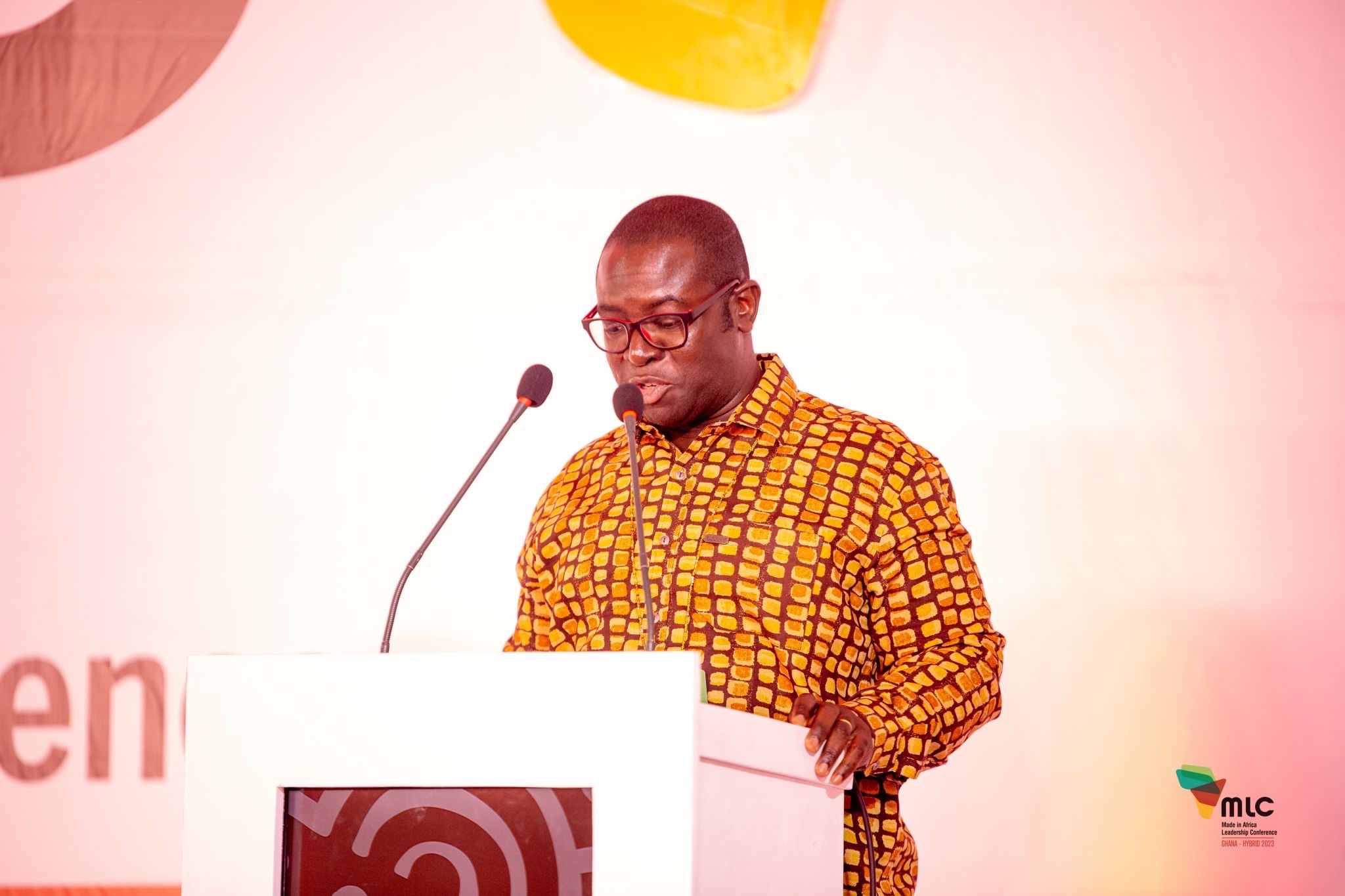
Sans Leadership–So Much to Lose, Too Much to Lose.
The following was shared as a TED-like talk to open the Made in Africa Leadership Conference by BCA Leadership on June 14 at the Marriot Hotel, Accra, Ghana.
My uncle died. My mom’s youngest brother. He came over to Ghana from the United States, where he had lived for decades, and fell ill. He died in the very hospital I worked in at the time. In fact, he died on my ward. But I can swear it wasn’t his disease that killed him. It was leadership, or rather the lack thereof. Leadership is too important for doctors not to have it.
Some of the most important things in life are not taught in school, like leadership. When some of my friends from university got into government I did exhort them: “Nobody taught us Jack about leadership. LEARN LEADERSHIP! CONTRACT COACHES! Leadership is not just caught; it is taught.” Did they listen? Ha!
Ironically, communal, national, continental or even global leadership, is a deeply person-al thing. It takes deeply transformed leaders to deeply transform society. Authentic leadership begins with aligning what goes on in a leader’s head and heart with True North. Leadership principles or True North are no respector of persons—red or yellow, black or white.
Two days from now, we will be officially launching the 20th anniversary celebration of The HuD Group, a holistic leadership organization started by nine young Africans in Accra. From one country in West Africa, it now has presence in 24 countries, on all six continents. Out of Africa to the Rest. From a former Rwandan refugee now in executive leadership in Uganda to a former child soldier in Sierra Leone now a high-ranking bank official in his homeland, to a Chinese-Canadian who we trained via Skype when she was an international medical student in Australia, a lot of transformation and impact has been achieved but in Ghana in particular I feel much of our gains have been eroded by not giving adequate attention to political leadership.
So today is the first of two important occasions this week where I will be drumming home this point with all my heart, liver, spleen and intestines: “Leadership is too important to leave it to politicians alone.” AND with 90% of African businesses being SMEs, creating 60-80% of our jobs and accounting for 40% of our GDP, what we do here at MLC this week for African leaders and African leadership is wildly important.
When two 14-year old stowaways from Guinea, Yaguine and Foday, froze to death in the landing gear of an Airbus 330 from Conakry to Brussels, they had on them a hand-written letter labelled: IN CASE WE DIE… to the Messrs. members and officials of Europe.
They said, among other things, “We have the honor and pleasure and great confidence in you to write this letter … we appeal to your solidarity and kindness for help in Africa. …we, African children and youth, ask you to create a great, efficient organization for Africa to allow us to progress. …we want to study and we ask you to help us in Africa to study to be like you.”
You should find and read the whole letter here—it will thaw and tear your heart. And that was 24 years ago. Has anything changed?
It’s time for Leadership Made in Africa that makes Africa work for Africans. BEFORE WE DIE. Yes we can, partnering and collaborating to reimagine and reform the Africa that we want! Twende! Let’s go! Let’s do this!
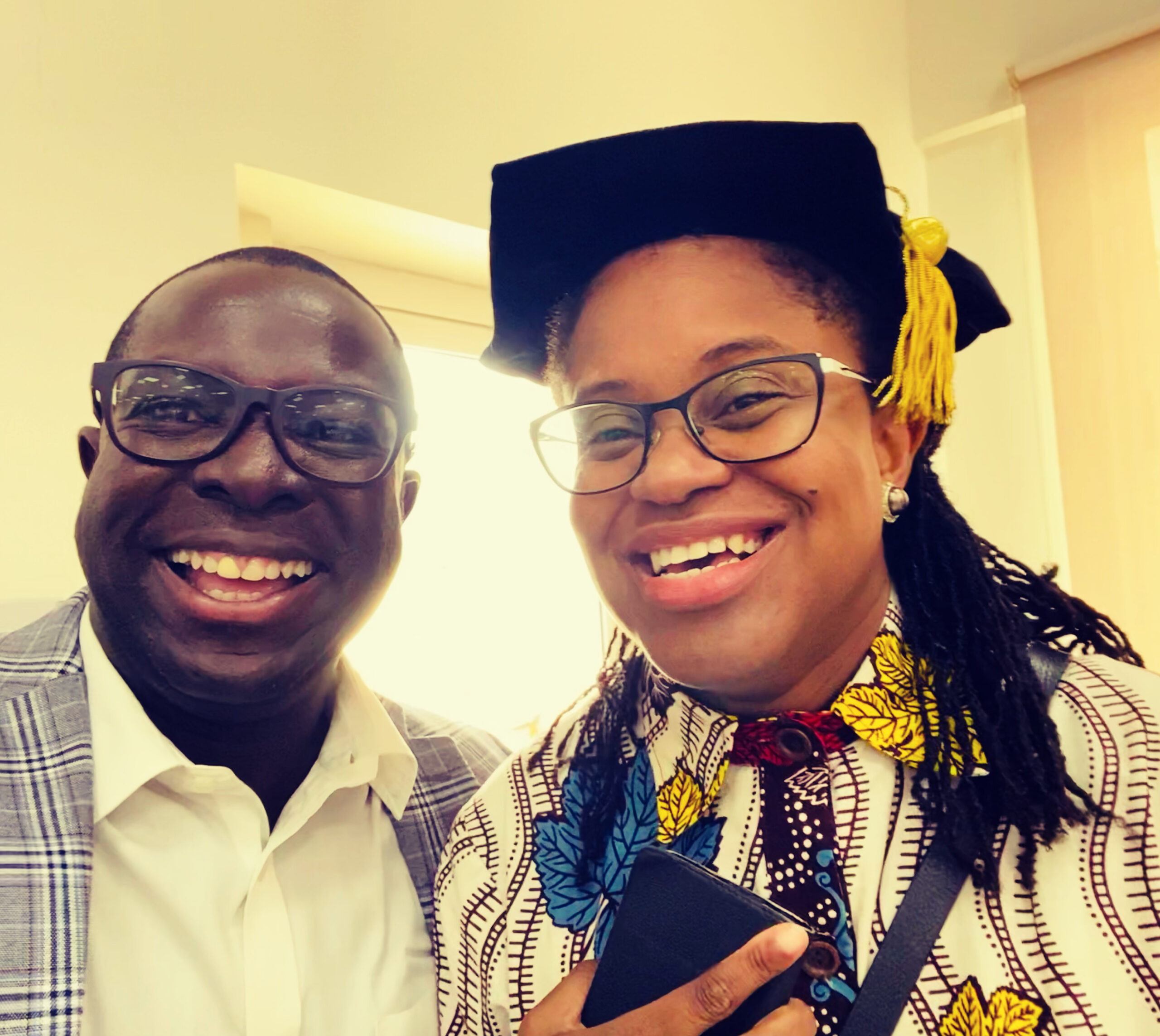
To Compete or To Complete? That is the Question.
Dr. G. Ayorkor Korsah (née Mills-Tettey) and I shared many hearty laughs at the VIP lounge after Ashesi University’s impressively inspiring commencement ceremony last Saturday, June 3, 2023. She is a Senior Lecturer in Computer Science and Robotics, and as department head, Computer Science & Information Systems, she was in her element dolling out degrees to deserving graduates. But we have a 28-year history of rivalry.
This wasn’t our first meeting. Nearly three decades ago, in 1995, we were impassioned opponents. Each of us was part of a trio representing our high schools in the semi-final of the Brillant Science and Maths Quiz on national television. Brillant was what it was called, yes, no typo there. That was the name of the blue bar soap by Unilever that was the title sponsor OF the competition. Much has changed since then. National Science and Maths Quiz, it’s now called. Very appropriate. Prime Time was in its prime, producing this feast of brilliance. They seem to have kept their shine, now in the hands of the next generation of Mensah-Bonsus.
THE LADIES WERE LOVED
Our battle was held and filmed at the Great Hall of the University of Ghana, Legon. Technically, this should’ve been a ‘home match’ for me, in my own territory, since the venue was barely a mile from my home, No. 14 Legon Hill. But no. Everyone was rooting for the über smart all-ladies team from Wesley Girls. Can you blame them? Even now they would be a delight; how much more in those medieval ages of STEM in Africa. Come to think of it, the now-ubiquitous ‘STEM’ term for Science, Tech, Engineering and Math had not even been cooked yet. The STEM acronym was only introduced in 2001 by scientific administrators at the U.S. National Science Foundation (NSF). Girls in Science were hallowed in the 1990s. Even I admired them, but my mission was to win for my school. No distractions.
My Achimota School team was made up of three boys, the three musketeers, although we are the first co-ed public school in the country as far back as 1927 and had science girls who rocked. Needless to say, the competition against the Cape Coast chics was fierce. We had both earned our way to the penultimate in the southern zone.
We inflicted what is arguably the most painful defeat Geyhey has ever suffered at the science and maths quiz. It was veeery close. Even the camera crew were downcast when the celebrity girls lost, visibly disappointed. We made enemies that day. Some couldn’t even hide it.
SOME OTHER LADIES, SOME OTHER TIME
But as it turned out: it’s not the whole word that hated us. Some girls loved us. I was the recipient of umpteen letters of adulation from young ladies all over the country. They happily introduced themselves, sometimes with atrocious photo inserts, and poured their admiration on me—about my intellectual prowess among other things which will distract from the point of this article. Now I’m not sure all of it was appropriate for seventeen.
Even the Weygeygey girls became friends later when things cooled down. After all, “if you can’t beat them; join them,” as they say. That’s how I ended up with the various names in that year group, some of whom became colleagues at the University of Ghana Medical School, as friends. Zanetor Rawlings, first daughter of the then Flight Lieutenant-retired president of Ghana, even visited me in Achimota School at some point. Like me, she would later pursue Medicine too; but in Ireland. I once warned her at a party in Nana Ama Barnes’ home on Legon Campus that if she dared ended up schooling outside Ghana after her revolutionary dad had messed up (yes, teenagers are fearless!) our educational system so, I would be really mad. I guess I’m still mad. A little. She has since returned and been admiringly serving as a Member of Parliament for the Korle Klottey constituency of Accra. In any case, seeing affliction metted out to a certain young man who hang around her at the time, involuntary hair-shaving at the Osu Castle and all, it might have been providence that I stayed at arm’s length.
NOTHING BUT ADMIRATION AND RESPECT
But I digress. Back to the main lady Gertrude, as we called Ayorkor then. She was and is brilliantly brilliant. We only beat her team by strategy and a stroke of luck. Call it grace, if you like. Those girls were on fire! Ayorkor, after 1995, went on ahead to pack up four degrees including two Bachelor’s, a Master’s and a PhD. Dr. Korsah grew up in Ghana and Nigeria, and as a child, she wanted to be an astronaut and an engineer. Ayorkor didn’t join the majority of us that continued to Ghanaian tertiary institutions but went to Ivy League Dartmouth to major in engineering. She attended Carnegie Mellon University for her doctoral work in computer science, obtaining a PhD in 2011.
Ayorkor Korsah is all-round passionate about the artificial intelligence (AI), robotics, algorithms, and programming courses she teaches on the Ashesi Hill but so is she about expanding robotics education in Africa for every Kofi and Amma. That’s why she co-founded the African Robotics Network (AFRON) over a decade ago with a robotics professor at the University of California, Berkeley, Ken Goldberg.
Anyele my wife and I really found a common sweet spot with Ayorkor last Saturday when we coincidentally discovered our common passion for literacy. Being someone who has shared with the BBC how humans and machines can collaborate and combine their strengths, Ayorkor once, over a dozen years ago, experimented with an automated reading tutor in the quest to improving child literacy in Africa. She has a paper on it in the Information Technologies & International Development journal, vol. 6 no. 2, 2010. We are keen to collaborate with her and her bright Ashesi students at our EdTech company, Perbi Cubs, for bigger, brighter and better outcomes for Africa’s precious cubs.
NOT A BOUT
Ayorkor beat me to full-time lectureship and will most likely beat me again to professorship (she so deserves it). But as she, Anyele and I continued our hearty conversation, including recruiting some of her students to practice what she teaches at our Edtech, we got to know she has two little ones of her own, younger than our last two. And we have seven. We beat her to that, fair and square. She even just married, in light of our sixteenth year, and transitioned from Mills-Tettey to Korsah.
Enough of these beatings! Really we’re all grown now and know, for sure, that life isn’t a race against each other. Nor is it about a bout. Rather than compete like we did in our teens, we now learn to complete one another in our adult years for the greater good—the Good Society. In lockstep, we will keep producing holistic emerging leaders, formally like Dr. Ayorkor Korsah does with degrees at Ashesi and informally and semi-formally like I do at The HuD Group. Ashesi turned 20 last year and we turn the same this year. Patrick Awuah, our mutual founding friend of Ashesi will be keynoting at The HuD Group’s presser on June 16, 2023. I was telling him that maybe I should’ve started a Uni too instead of going the CSO (Civil Society Organization) route. But nay, to each one their own. And we compliment, collaborate and complete each other as we all strive hard and long towards the Africa we want.
And as if by divine design, one of the Presec folks who beat our Achimota team in the finals of the Brilliant Science and Math Quiz 1995 southern zone competition ended up as my Biological Sciences course mate and even my room mate at Legon Hall, University of Ghana. We both competed for the few slots at med school available to our Leviathan-sized cohort and made it–from the same room!
There’s a time to compete and a time to collaborate. For me, to complete and not compete today as professional pals and fellow family framers of the same generation is a no-brainer. Here’s to answering life’s real tough questions and quizzes together. Congratulations, Dr. Ayorkor Korsah, for continually raising the bar.
Post script
And oh, Anyele and Ayikai, Ayorkor’s engineering whiz kid of a younger sister, have been tight friends for a quarter-of-a-century, going way back to their Wesley Girls days.
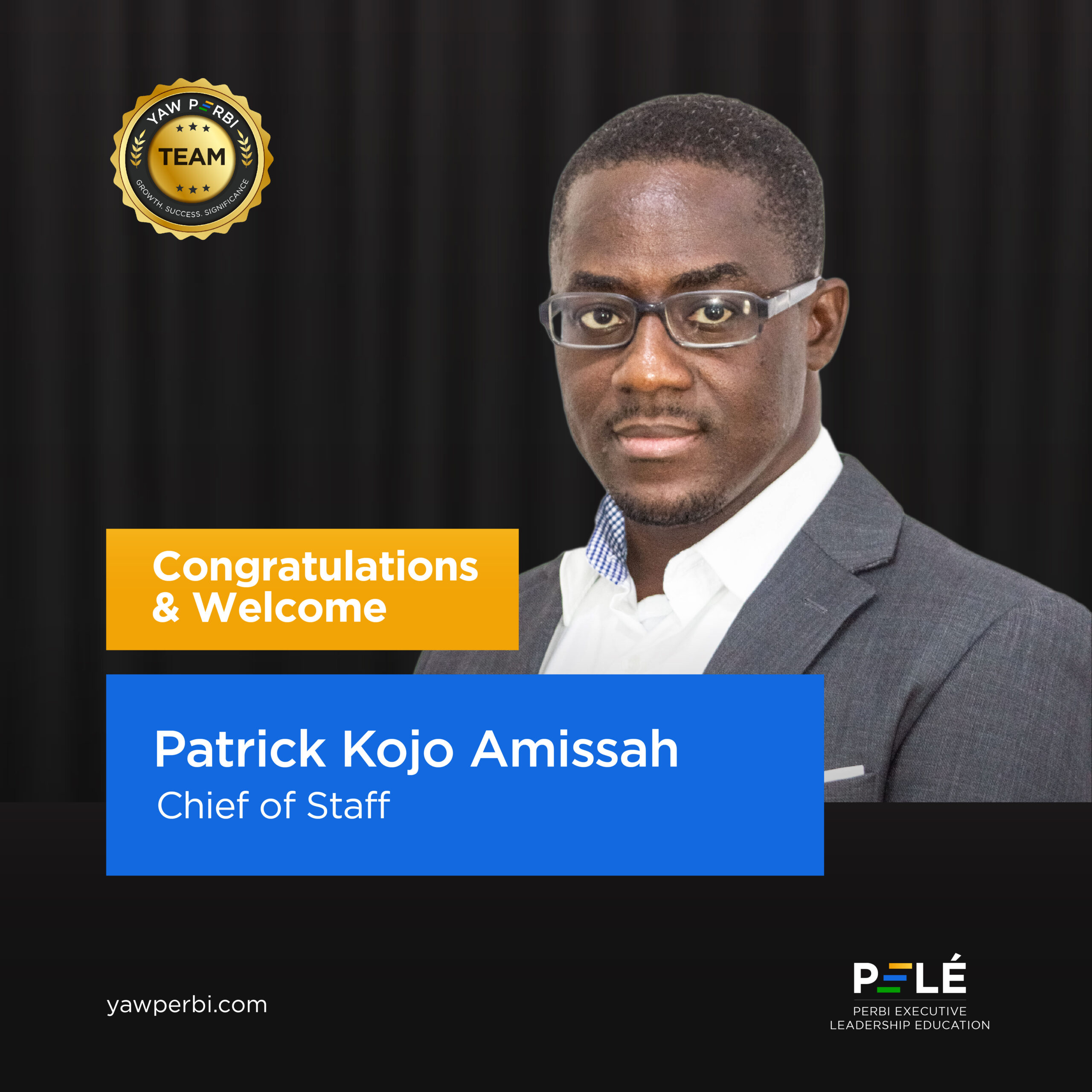
Perbi Executive Leadership Education (PELÉ) Gets New Chief of Staff: Introducing Patrick Kojo Amissah.
Perbi Executive Leadership Education (PELÉ) and allied Perbi establishments heartily welcome Mr. Patrick Kojo Amissah as our new Chief of Staff. Kojo Amissah is a versatile professional with experience in organisational leadership, team and operations management. He believes in striving for excellence and critically analysing problems with the goal of coming up with practicable, innovative solutions. He has worked in the educational, publishing and financial sectors.
Kojo’s previous work experience includes co-managing a start-up (Catalyst Learning Limited) and growing it into a sustainable firm. His responsibilities included structuring and establishing different roles and tasks, recruiting and training staff, establishing systems, managing finances, and planning and executing projects. For over three years he led in the development, printing and distribution of over five million copies of textbooks and workbooks to various schools across Ghana. He managed communications and relations with foreign printing firms including negotiating prices and planning the delivery of printed books.
We are convinced that the skills and knowledge gained from these experiences will enable him to quickly adapt to the demands of the Chief of Staff role at PELÉ and to exceptionally perform the outlined responsibilities. Mr. Amissah possesses good leadership and team management skills which he honed while serving as Team Leader, Curriculum Development and as Chief Operations Officer. Watch out for PELÉ’s online leadership courses to be launched by mid 2023.
Mr. Amissah developed important team building and conflict management strategies as he directly and indirectly managed over thirty individuals performing different roles. He also possesses good negotiation skills and valuable stakeholder management experience. At PELÉ, we believe these are important transferable skills that will aid his interactions with staff of Perbi Executive Leadership Education and affiliated organisations like Perbi Cubs, Kwiverr, The HuD Group, Send Africa, Adeshe Real Estate, ISMCanada, PAIS, Africa to the Rest, BCA Leadership, the Lausanne Movement etc. Kojo takes the baton from Ashesi cum University of Warwick alumna Araba Andoh who laid pioneering tracks for the role.
According to Kojo, “I am highly motivated to serve in the role because it provides the opportunity for me to put my unique mix of experience in leadership, operations management and publishing to use in the worthy cause of growing executives to make significant impact in society. I also believe that working directly with an accomplished leader and entrepreneur like Dr. Yaw Perbi is an unmissable opportunity to grow professionally.” Among Kojo’s first tasks will be helping to host the incoming BCA Leadership Made in Africa Leadership Conference, launching PELÉ’s avant-garde DeepLEAD online leadership course and providing operational support for both The HuD Group’s 20th anniversary activities and Kanéval by PerbiCubs/UNESCO Accra World Book Capital. In commemoration of the latter, Dr. Yaw Perbi seeks to (re)publish all his two dozen books.
We welcome Mr. Kojo Amissah at this inflexion point where YAW PERBI is transitioning to PELÉ (Perbi Executive Leadership Education) to maximize team potentials beyond the availability and capability of Dr. Yaw Perbi as an individual. PELÉ by YAW PERBI is an Executive Education firm that offers authentic and customized relationships and resources to C-Level executives to grow personally, succeed professionally and become significant societally. PELÉ’s vision is to see a flourishing global ecosystem of authentic leaders characterized by growth, success and significance.
Kojo wields a Bachelor’s degree from the University of Ghana and an MBA from Coventry University. He is a practising catholic. Akwaaba, Kojo. Bienvenue, Monsieur Amissah. Here’s to your own growth, success and significance. Together, let’s carpe diem and make a dent in the universe!

Introducing PELÉ (Perbi Executive Leadership Education).
Imagine a flourishing global ecosystem of authentic leaders characterized by healthy growth, holistic success and lasting significance. That’s the big dream and eternal hope fuelling our daily tasks at the Executive Education firm that bears my name, YAW PERBI. A couple of years ago, after eight years as President & CEO of a Canadian non-profit in the international education space and having garnered several years of executive leadership experience in the Ghanaian military and medical fraternity, global media, the United Nations in Cote d’Ivoire etc. I decided it was time to serve all of that to leaders of leaders: the C-suite. So I came out of sabbatical and stepped down as President of ISMCanada to do this.
Since according to my mentor of a quarter of a century, John C. Maxwell, by whom I’m officially a certified coach, speaker and trainer, that “one is too small a number to achieve greatness,” I have been steadily growing a global team of competent, caring, confident and character-based co-leaders on/from every continent in the world beyond myself to make our faith, sight. That journey has culminated in the birth of PELÉ.
A Play on Words
In keeping our focus on growing and coaching executive leadership to succeed, ever broadening the authentic relationships and resources we bring to bear on our task, we decided to move away from YAW PERBI specifically and to build Perbi Executive Leadership Education, PELÉ for short. PELÉ is not exactly just a happy coincidence, for as a once-upon-a-time football fanatic and soccer player for my elementary school, I recently engaged in my fair share of arguments about who the greatest soccer player of all time is between the shouts in favour of Lionel Messi after lifting the Qatar World Cup trophy on December 18, 2022 and the incessant calls to hallow the legendary Edson Arantes do Nascimento, better known by his nickname Pelé, who died eleven days later on December 29. As a double childhood hero—both of my dad and myself—I had been pondering a way to honour a Black man who gave everyone so much delight and so many people of his skin hue so much pride.
As I’ve stated before, “I am eager to particularly provide C-level executives of African descent with the paradigms, processes and tools necessary to maximize their potential, to be world class, take the world stage and make their dent in the universe.”
A Word In Play
Then came April 2023 when the Pelé Foundation and Sportv launched the “Pelé in the dictionary” campaign to pay tribute and recognise his legacy in other fields beyond sport. Of course his name has long been a synonymous with success and excellence, both of which are values of our Executive Education company, but now the great Brazilian forward and only human to have lifted three World Cup trophies officially had his name in the Portuguese dictionary. The adjective “Pelé” has been added to the Portuguese edition of the Michaelis dictionary to describe “someone out of the ordinary.”
Pelé, the nickname of the late football legend, has officially become tantamount to “extraordinary, exceptional, incomparable, unique.” Pelé is an adjective for something or someone that is out of the ordinary, one who by virtue of their quality, value or superiority cannot be equalled to anything or anyone, just like Pelé. For example, he is the Pelé of basketball, she is the Pelé of paediatrics.
What’s in a Name?
According to Emily Olson of NPR, “It was in the small, impoverished town of Bauru where he first got his nickname playing in youth leagues.” Apparently, even Pelé himself wasn’t sure where it came from, he wrote in a 2006 piece for The Guardian, but it may have been a play on Bilé, the nickname of a goalkeeper for the team Pelé’s father played on. “I can remember the name really bugged me at first. I was really proud that I was named after Thomas Edison and wanted to be called Edson,” he said. “I thought Pelé sounded horrible. It was a rubbish name. Edson sounded so much more serious and important.”
PELÉ by YAW PERBI is an Executive Education firm that offers authentic and customized relationships and resources to C-Level executives to grow personally, succeed professionally and become significant societally. To this end, the company provides Pelé services in leadership development, management training, executive coaching and publishing. Our Pelé coaching, authoring, speaking, and training are centred on LIFE—Leadership, Integrity, Family, Entrepreneurship.
Conclusion
We are PELÉ–extraordinary, exceptional, incomparable, unique–but more importantly, we form PELÉs, who are authentic, out of the ordinary executive leaders in every sector of life and all society’s centres of influence. As a forward-looking, authentic leader, if you want to dextrously dribble through LIFE and exceptionally hit goals like the legendary Pelé, you know where to look for the kind of coaching and training it will take: Perbi Executive Leadership Education (PELÉ). Like begets like.
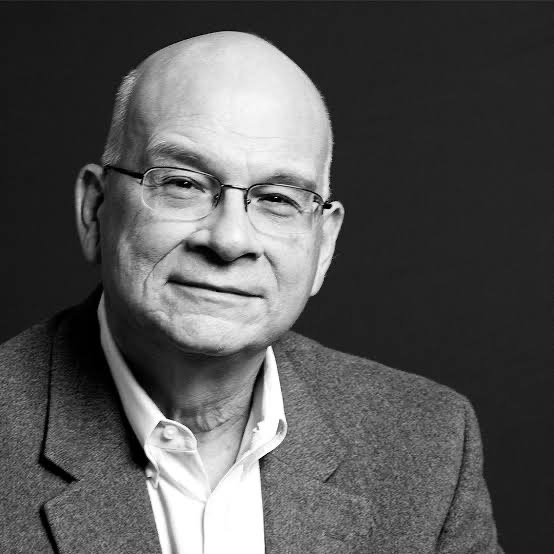
Tribute to Tim of my Table ~ Timothy Keller (1950-2023).
We first met on a table near the Table Mountain; I hope we meet again, in eternity, at a wedding table on a holy mountain.
In an emerging leader-affirming move, typical of The Lausanne Movement, my 32-year old self was appointed a table head at the Third Lausanne Congress on World Evangelization in Cape Town, South Africa. Imagine that. This was a gathering of the crème de la crème of Christian leaders from around the world, even described by some as “the most representative gathering of Christian leaders in the 2,000 year history of the Christian movement” (Christianity Today).
Each table had about half a dozen members. One of mine was Tim Keller. At the time, I had no clue who he was and quite frankly, couldn’t be bothered. Everyone was somebody. He wasn’t always at the table and even when he was there, he wasn’t quite there.
The Congress was over and everyone received their beautiful certificates of participation. Tim wasn’t there. Again. Apparently he had left back to the United States earlier. So I decided to travel back to Canada with his certificate, do an internet search of his whereabouts and mail his certificate to him in the States.
THAT is when I found out to my shock what a tall figure of a man this was! I eventually did get to speak with a staff and mail his memento to the right address (I would hope) in New York City. Rev. Dr. Tim Keller, founder and lifelong pastor of the 5,000-member Redeemer Presbyterian Church, was über brilliant and very deep—in head and heart. So deep that he had decided not to write any book till he was in his fifties. “Writing a book in your 50s will go twice as fast and be twice as good as if you try the same book in your 30s. It’s just good stewardship to wait,” he told The Gospel Coalition, which he was co-founder and Vice President of.
The other dimension I admired most about Keller was how ambidextrous he was in elucidating the gospel and engaging the culture, simultaneously! Stupendous! That, to me, was epitomized in his invitation to speak on his obviously Christian worldview book, ‘The Meaning of Marriage,’ at Google in Silicon Valley. Check out his presentation and responses to their questions and comments. Dr. Keller mentored many, near and far, in-person, in spirit and via media. Those around the world who were directly mentored through his Redeemer City to City should count themselves fortunate, blessed. I just spotted on Facebook a touching tribute from a pastor friend of mine from Brazil who recently planted a church in Rome, inspired and equipped by Rev. Keller.
As a latter day follower of Tim on Twitter, I admired the way he vulnerably yet resolvedly faced his imminent death, having been diagnosed with pancreatic cancer since 2020, a sequel to his 2002 thyroid cancer battle. All the while incarnationally demonstrating ‘The Meaning of Marriage’ through the dynamics with his wife of nearly 50 years, Kathy Kristy. Tim transitioned into glory on Friday the nineteenth (of May), 2023.
Dr. Tim Keller’s influence on the church and the world for Christ is deep and wide. I hope we share a table, again, at the grand, imminent marriage feast of the Lamb in eternity. Till then, Rest in Peace, champ! #Maranatha!

It’s the Family, Stupid.
Most people who are abreast enough with current affairs and know that “It’s the family, stupid” is a play on the famous slogan for the 1992 Bill Clinton election campaign (“It’s the economy, stupid”) will not know that today, and every May 15, is the International Day of Families. In my world it has never gained the popularity of, say, International Women’s Day. If it was so-scheduled to leverage Mother’s Day then it’s had the reverse, untoward effect of drowning it instead.
The Day was proclaimed by the United Nations General Assembly exactly three decades ago, in 1993, with resolution A/RES/47/237. According to the U.N., it’s supposed to reflect the importance the international community attaches to families, provide an opportunity to promote awareness of issues relating to families and to increase knowledge of the social, economic and demographic processes affecting families.
At Perbi Executive Leadership Education (PELÉ), we celebrate everything LIFE–Leadership, Integrity, Family, Entrepreneurship–and even currently have an ongoing Flourishing Families Masterclass running for the entire month of May. Whether it’s the more intensive Family Foundations Mastermind or the shorter and lighter Flourishing Families Masterclass, the following six perspectives are offered as a foundation for why family is ultra important (these are extracts from an e-booklet I’ve put together for the mastermind and masterclass):
1. CREATOR PERSPECTIVE | God is Family
God is family. Father-Son-Spirit. Note the familiar family terms, father and son. Having created humankind in His image and likeness to reflect on Earth what it is in Heaven, human family is huge deal. At the core of cosmos is a love relationship—Lover, Loved and Love itself. Everything rises and falls on love, everything rises and falls on God, everything rises and falls on family.
Of course, we could go into how God created the first family after declaring “it is not good for man to be alone,” how throughout scripture and history God chooses a person and their family to work through, the many scriptures that seek to protect, preserve and promote family etc. Even when God decided to wrap Himself in human flesh and move into our human neighbourhood in the person of Jesus Christ, he chose to implant himself in a family—Mary and Joseph’s. Everything rises and falls on family.
2. Centres of Influence | Every sphere is filled, fuelled and influenced by home
What do all of society’s centres of influence–Arts & Entertainment, Business, Science & Technology, Education, Government, Media, Religion–have in common: human beings! Without family there will be no human beings at all to fill, fuel and influence all these other centres. The only sphere that produces human beings is family. Most schools of thought include family itself as one of the centres of influence in society but I wonder whether family should even be included in the centres at all or just made to underlie all of them.
Family is literally the pivot of centres, symbolizing how everything truly revolves around it. Every centre rises and falls on family.
3. CRADLE PERSPECTIVE | Parents Shape World Shakers
Have you ever heard the proverb, “The hand that rocks the cradle rules the world”? That is 1865 wisdom unleashed on the world through the refrain of a William Ross Wallace poem that praises parenthood as the preeminent force for change in the world. Of course, at the time it was written, nearly two centuries ago, the work of raising children was mainly seen as the role of the mother but we know all too well it takes two to tango. Both father and mother have a role in rocking the cradle.
Parents, and the wider family, shape the people who would shake and move the world, for good or ill. These two PhDs, Barbara Riggs and Cynthia Tweedell, don’t mince words in their Marriage and Family textbook: “The strongest influence in your life will stem from family.” Period. Everything rises and falls on family.
4. CELLULAR PERSPECTIVE | Family is the basic unit of humanity
So yes, “it is the hand the rocks the cradle that is the hand that rules the world” but alas! today, everyone wants to change the world; no one wants to start at home. The irony! Not only does everything rise and fall on family because the hand that rocks the cradle rules the world, but also the family is the basic unit of society and humanity just as the cell is the basic unit of biological life or the atom is for all matter.
Yet somehow, we think we can flourish in the corporate world, government and such without adequately addressing the lowest common denominator! If you think one cell gone bonkers is no big deal, think again about cancer. That’s all it is. Individual cells gone bonkers, multiplying unhealthily—and eventually fatally spreading that craziness to other parts of the body (metastasis). Sooner or later a whole monarch or president or parent dies, all because of a cell gone awry. Everything rises and falls on family, that one cell.
5. CALCULATION PERSPECTIVE | Hindsight is 20/20
Today’s C-level executive claims, “It’s not the quantity of time but quality that I spend with my family that matters.” This is a fallacy. Family costs what it costs, and it doesn’t go on sale! The question is if we are willing to pay the price.
Even for the richest and most popular of leaders, when they assess their lives, doing a calculation of all they’ve spent their talents and energies, time and finances on, the truth remains that, “There’s no one who on their deathbed has been heard to say, “I wish I had spent more time at work.”
6. COVID-19 PERSPECTIVE | The only place to be/go has been home
When our all-important selves on our all-important endeavours were brought to a screeching halt by the recent Coronavirus pandemic, where did we all head? Home! When literally every economy and society locked down, where did we stay put and be safe: with family! I’ve never seen so many advertisements on primetime television asking people to stay home in my life! Heroes, according to the World Health Organization, stay home! Ha! Who would’ve thought that day would ever come?!
Even high-flying pilots have been grounded, literally, at home. At the time of first writing this down for the initial Family Foundations Mastermind we run during the pandemic, I hadn’t flown in a year—and that was incredible, considering that there were times in the last few years when I did as many as 70 flights in the year!
My VIP airport lounge passes and platinum airline and hotel statuses have been rendered useless. The only thing that mattered most was the people many of us paid the least attention to prior to COVID-19: family.
Crucibles reveal what’s most important. Now that this pandemic is over, we would need insignia to remind us, lest we forget, that everything rises and falls on family.
CONCLUSION
These are my compelling six cases for why family is absolutely a big deal, in every nation and generation. I long for the day when marketplace leaders will recognize the prime place of family and ensure their work(place) empowers families rather than diminishes them. “It’s the family, stupid.” Everything rises and falls on family. Happy International Day (Month is better) of Families.

